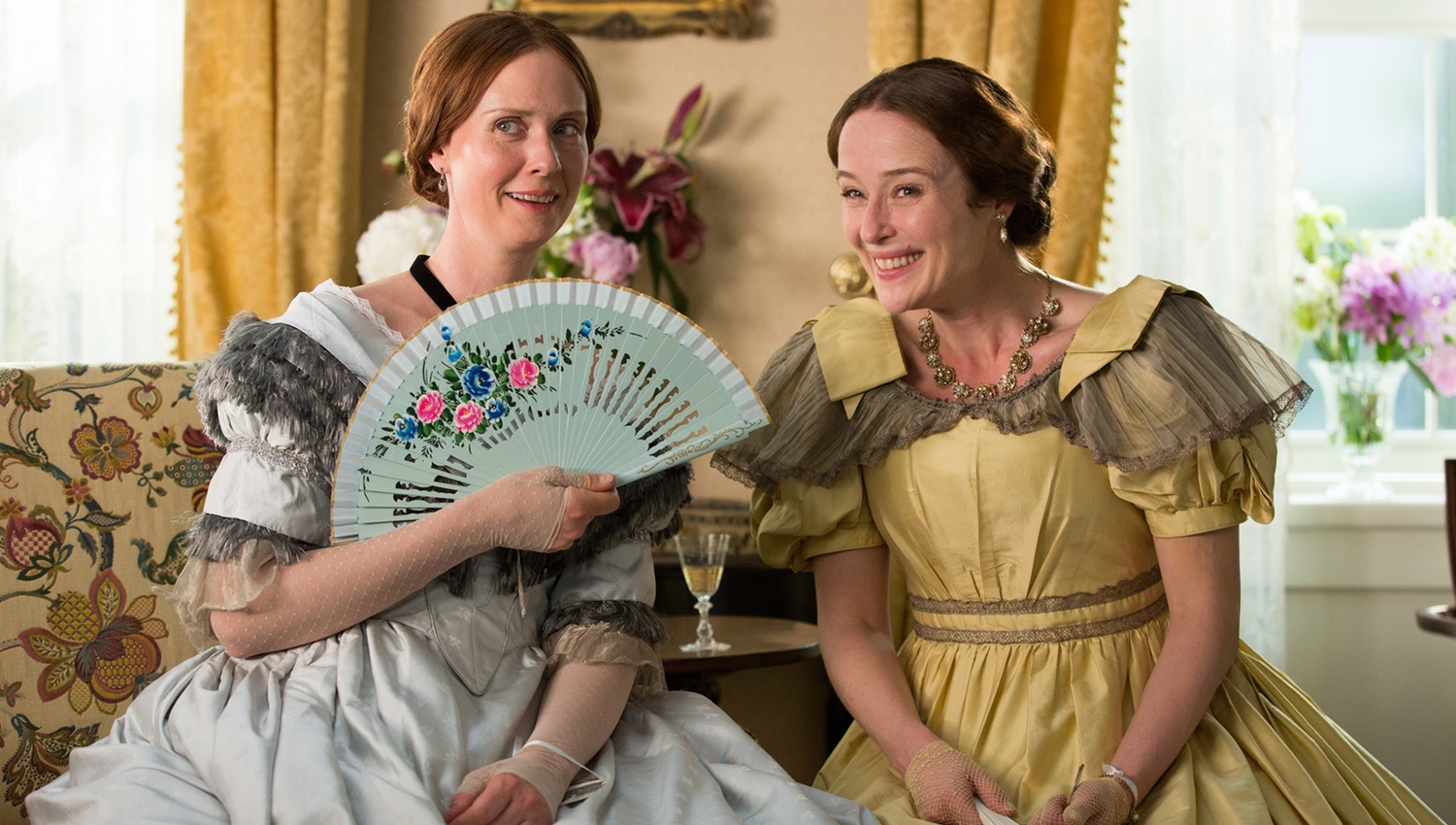
A Quiet Passion
Dustin Chase
Prepared for another stuffy Terence Davis film, always associating him with adaptations like House of Mirth. However, A Quiet Passion feels very alive for a film biography on the life and madness of poet Emily Dickinson. In fact, Davis’ original screenplay is award worthy, cunning, and hysterical. Even more surprising was the rich layers in Cynthia Nixon’s performance as Dickinson. Last year Davis’ Sunset Song showcased his ability to expand his cinematic approach to the period piece, A Quiet Passion takes that even further. You expect a certain amount of education on the American poet, including her peculiarities and eccentricities, but I doubt anyone will anticipate the humor in which Davis presents this biopic. A Quiet Passion is Sex and the City for the 1800’s, albeit without any sex, but the dripping sarcasm and sass will surprise those expecting some dull costume drama.
“I wish I could feel as others do,” young Emily Dickinson (Nixon) says. From an early age the eventual poet and posthumously renounced celebrated writer refused predetermined expectations on the female role. That independence earned her quite a reputation, but also took a toll on her emotional and psyche, as she longed for love despite what her behavior suggested. She and younger sister Vinnie (Ehle) scoffed at others who embraced societal norms, often mocking them directly to their face, most too dim witted to realize. Their wealthy and educated parents encouraged their children’s independence, but not if it interfered with religious obligations. Emily said she didn’t need to attend church to get her soul right with God, that she could do that on her own.
Davis’ original screenplay is award worthy, cunning, and hysterical.
Perhaps my favorite scene in the entire two-hour film occurs in the middle, during a testy coffee/tea drinking scene. “I will muster all the dignity I can,” Emily grins before meeting the new reverend and his wife. “That’s what I’m afraid of,” Vinnie responds. What proceeds is a hilarious exchange between the most uptight characters in the story sitting across from the most liberal. Nixon and Ehle have a duality in these exchanges, often with subtle looks, that create a wonderful unspoken maliciousness. It’s the most fleshed out role of Nixon’s otherwise supporting career. She doesn’t just land the comedic scenes with brilliance, but really offers one of the year’s most comprehensive performances.
Davis relishes meandering camera work as he explores rooms and locations. This practice helps insert the audience into the period as the sound helps aid time and place. The second half of the film finds less comedy as Dickinson’s parents pass away, quarrels with family turn destructive. Davis script begins to explore the effect Emily’s stubbornness as a young woman has on her maturity and self-isolation. “Oh, you are a wretched creature. Will you never achieve anything,” she screams at her reflection. “I long for something, but I am afraid of it.” As the film spans her life, Davis and Nixon create a terrific portrait of a woman battling with so much internally, longing for the very thing she denies. The spring release might hurt Davis screenplay and Nixon’s chances for any awards consideration, but both are deserving.
Final Thought
One of the years’ most brilliantly contemptuous screenplays followed by 2017’s first Oscar worthy performance.
